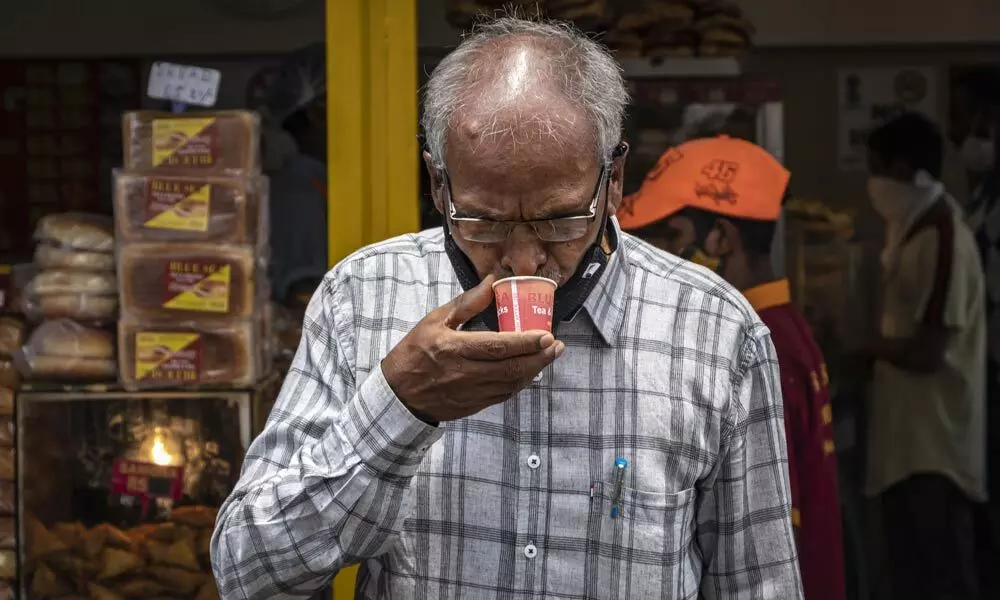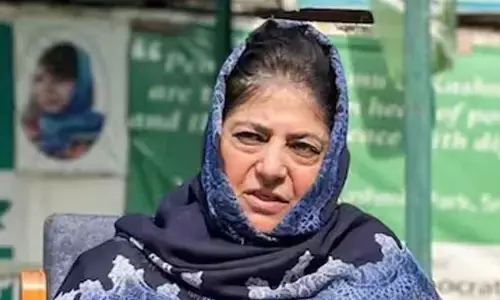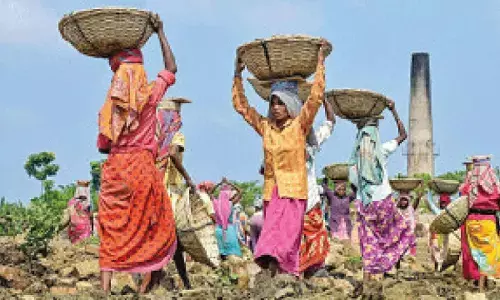Irani Chai Calling!

Irani Chai Calling!
As part of the city's daily hustle and bustle, the Irani Cafes serving hot chai have been an integral part of Hyderabad.
As part of the city's daily hustle and bustle, the Irani Cafes serving hot chai have been an integral part of Hyderabad. Stopping by a cafe between commutes or during work breaks to sip chai has been a part of the daily lives of many city dwellers - for nearly a century. Along with chai, accompaniments like biscuits, luqmis, nankhatais and smokes are commonplace in most of these cafes. Just like the Biryani, the Irani Chai is an iconic symbol for the Hyderabadi culture. The busy cafes spread around Hyderabad have helped maintain the noted status of Chai for locals and tourists alike. But it is the locals visiting these Cafes daily who sustain these businesses. The crowds also meant a source of income for the many servers who work there as pay-by-service workers. A moving, earning workforce on the streets are the lifeblood for these places, which have taken a bad hit from the deserted lockdown conditions. For a variety of groups that frequent them, these cafes also serve as perfect places to socialise and spend leisure time. Chai and Chill was the mood for many Hyderabadis before Netflix and chill even became a thing. To many, chai, sutta and gappe (tea, smokes and gossip) went hand in hand with the hours spent in these beloved cafes. Today, however, these cafes put up with a barren look, as if they have been abandoned.
Even before the pandemic, these Irani Cafes have seen a decline mainly due to competition from different kinds of coffee houses such as the barista, CCD, Tea Points and chai delivery services. which have spawned closer to the cafes or near business centres. White-collar working adults and the young college-going youth are more attracted to these new branded and sophisticated establishments. The rising commodities and operational costs have made sustainability unrealistic for cafes.
I visited a few Cafes around Hyderabad and interviewed their owners in the past few weeks to learn about their current situation. In my conversations, all owners have expressed that the sharp decline in customers even before the pandemic came as an unexpected shock. These places had not witnessed any competition in the tea business for decades. While the closing of shops is far from being accepted as a solution, the growing competition is not allowing for any respite. Once the Starbucks and Baristas of the city, these Irani cafes have today been reduced to unhygienic, poorly maintained, uncomfortable places as their business wanes day by day. There are cafes which still function properly and keep their customers happy, but the magnitude of this downfall trend is worrisome as we are losing smaller cafes faster than we realise. The cafes have tried to put up a fight against falling business and competition with different kinds of additional offerings such as Chinese fast-food stalls, new confectionery items, more service with increased labour and home delivery through food delivery apps. In spite of that, the damage caused by the already downward trend and the covid lockdowns has shown that many of these cafes have bit more than they can chew.
Despite the struggle in running these cafes, the big cafe owners do not appear to have a plan B, as they consider this as an established, niche family business handed down to them by their forefathers. Some owners remain optimistic given the age-old, authentic value of their establishments. One cafe owner, who did not want to be named, remarked, "our business still does not have any competition. The signature Irani chai we sell is unique and unlike ones found in any other tea joints. We prepare it with our preserved tea formula. Even our tea leaves come from select farms. What others sell is not Irani chai." On the other hand, there are other proprietors who have put their life's savings into this business and are not ready to let go now. Even though the future of cafes remains bleak, these new owners are ready to invest more to survive. To them, it has become a way of life which they do not want to forsake.
On top of this competition, the pandemic struck a deep blow to these cafes. Beyond the loss of customers, the cafes suffer from the loss of informal labour which worked there and now returned to their villages for safety. There is also a shortage of raw material supply on busy days without lockdowns. The Covid panic has created bigger and new challenges for the café owners as they had to cope to the new and sudden fall in business and over that they had to buy new equipment for sanitizing the hotels and all the facility to maintain the necessary precautions to curb the spread of the virus that's going around. They have stopped serving tea in the iconic ceramic cup and saucers and have shifted to disposable cups, which downgrades the value as even the small stalls on the foot paths also use the same. The bigger cafes have adapted to this and have introduced their own labelled disposable glasses which stand a class apart. Some of these measures have also been employed by the smaller cafes but it couldn't make the cut, as they were already facing a financial crisis and are finding it hard to recover from it. It has become a nightmare for the small businesses to proceed with their daily activities as crowding at these places also becomes commonplace and social distancing very unmanageable. The unique charm in Irani cafes– the gathering and socialisation – is being discouraged as these might become the next disease spreaders.
The bigger and branded cafes have no visible effect on them whatsoever as they have adopted the corporate way of functioning with new labels and packaging methods. It is the small cafes which run on a daily income basis that are seeing their worst nightmares come true with recurring lockdowns and growing Covid cases. Normally one small Irani cafe sells 2000 - 3000 chai every day, which has now fallen down to a mere 300 - 400 per day. As a chai lover and a Hyderabadi, I wanted to bring out the story of these cafes which were once cherished places to hang out. They are now vanishing slowly and silently. The second lockdown is causing even deeper damage even as they were just recovering from the last lockdown's dry spell on the business. One can only hope that this situation does not persist and keeps the small cafes from growing.














